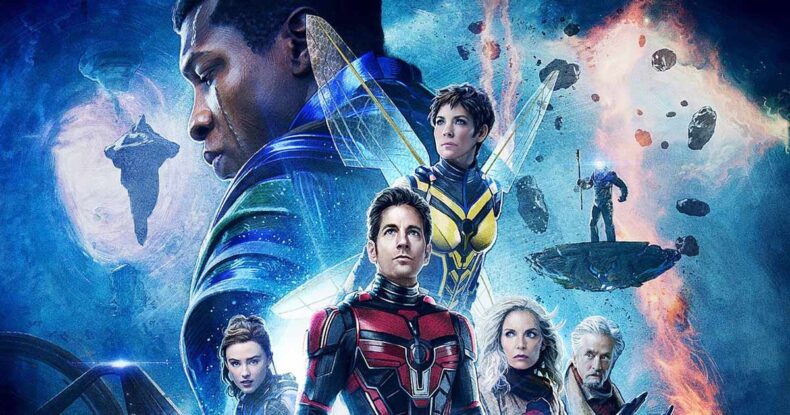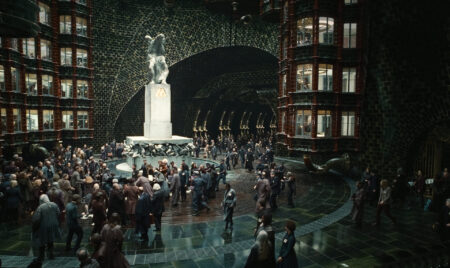The iconic Ant-Man series, starring the size-shifting hero portrayed by the incredibly endearing Paul Rudd, is brought to a close in the 31st instalment of the constantly growing Marvel Cinematic Universe. The average follow-up to the likeable Ant-Man (2015) and its good sequel, Ant-Man and the Wasp, is Ant-Man and the Wasp: Quantumania (2018). Compared to its predecessors, this new movie has several great things going for it, but it hardly remembers what made its hero so exceptional in the first place.

In actuality, the Marvel brand has suffered greatly from the inconsistent quality of its ventures. People genuinely miss the MCU movies, where the emphasis was on telling a character-driven tale with just the right amount of hints about what was to come. But since the release of Avengers: Endgame in 2019, everything has drastically changed. The exuberant pleasure of seeing our favourite superheroes on screen has been replaced with the unrelenting idea of the universe. All we have now, with the weight of a multi-billion dollar series hanging over them, is more material for sequels.
Ant-man in Quantumania
In Quantumania, we follow Scott Lang, a.k.a. Ant-Man, who is now a well-known novelist and in a happy home with his girlfriend Hope, a.k.a. Wasp, Hank and Janet, and Cassie, Scott’s tech-savvy daughter. The family unexpectedly travels to the quantum realm thanks to Cassie’s technology, a perilous location where Janet spent years and which harbours dark truths about its power-crazed king Kang.
Quantumania uses a lot of visual effects because the majority of the movie takes place in the quantum world. Several of the bizarre inhabitants of this universe contribute to the tension in the story, either opposing our heroes or working with them to triumph. But, despite Quantumania’s stunning visuals, the narrative that propels the picture is not as strong as it could be.

Instead of creating a dramatic urgency or tension, director Peyton Reed and screenwriter Jeff Loveness appear to have focused their whole effort on creating the garish quantum universe. The emotional core of the movie is a family dynamic, yet we do not feel invested in their relationship. With its candy-coloured scenery and absurd plot, the movie has a tone a lot like Disney’s Odd World (2022), but it lacks the kind of content that would keep us emotionally invested in the narrative.
Scott, the movie’s title hero, does not make much of an impression because the main plot is so preoccupied with Janet and Kang. The situation is worse for Hope/Wasp, who is made into a supporting character. Although Scott and Hope are consistently shown to be a terrific team, there is no chemistry between the two performers and no real interest in their character’s relationship. Fortunately, Jonathan Majors makes the most of this chance to give us a terrifying and alluring villain.
Considering that Riri Williams and America Chavez both appeared in Wakanda Forever and Doctor Strange 2, respectively, we assume that Kathryn Newton plays the required teen assistant, which is now typicaly in the MCU. Although she is just present as a minor story device and without any true personality, she may have been interesting.
Due to the complexity of the quantum realm and the short runtime (just two hours), many wish it had been extended to fully develop many of the characters and themes. Although we are often told that how powerful Kang’s kingdom was, we never really experience it. It starts with the introduction of a figure called M.O.D.O.K., whose acronym makes it sound like he would kill the victims. There are many events that occur fast and without incident.













